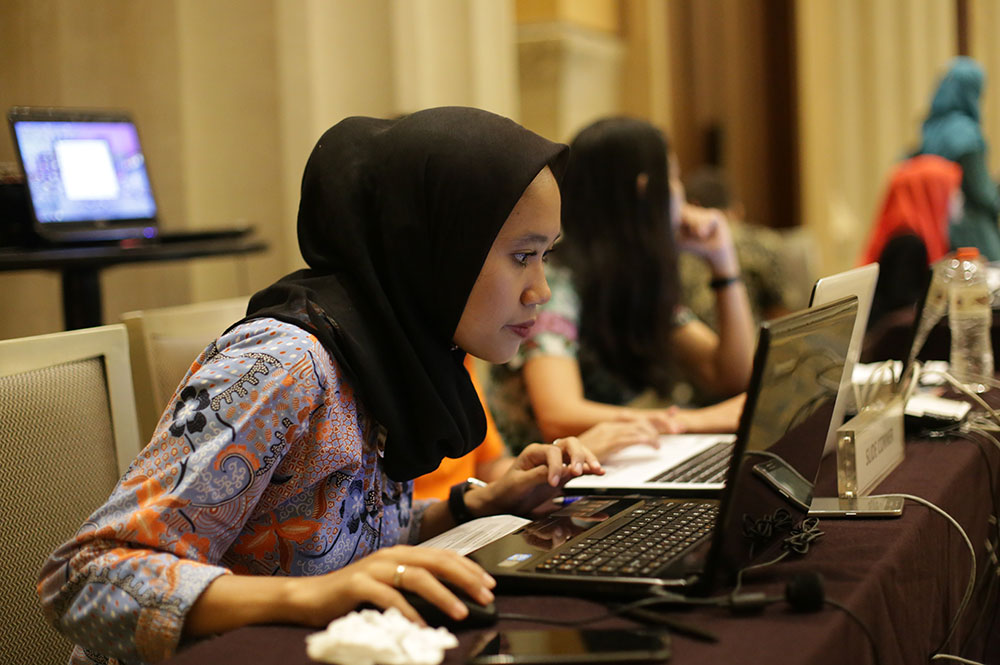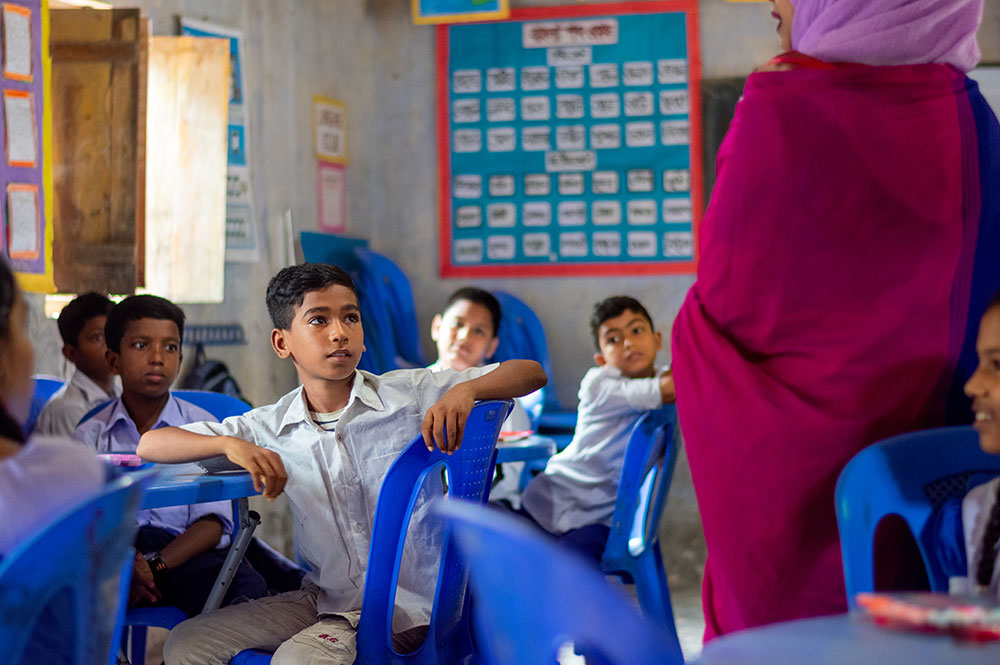DEVELOPING LOCAL SOLUTIONS
Supporting institutions

Hop on the bus in downtown Jakarta at rush hour and you will be greeted with a familiar sight: passengers intently scrolling on their smartphones, passing their commute reading the news or messaging with friends. Social media is part and parcel of everyday life in Indonesia, with around 200 million active users amongst a population of over 260 million. Yet the country has also experienced the darker side of online communication in recent years, as social platforms have been used to spread hate speech, extremist messages and even as recruitment platforms for intolerant or violent groups.
This challenge is acutely felt by the national government. “We had some cases of conflict in Indonesia where hate speech shared on social media even led to violence,” explains Alamsyah M. Dja’far, Programme Manager at the Wahid Foundation, a local NGO. “So today, every ministry is aware that social media has a very important role, including the potential to increase tensions in society.” With follower counts in the millions, some government ministries’ social accounts have serious reach among the Indonesian population too. However, the potential to use this platform to communicate with citizens on issues like tolerance and diversity had largely been left untapped. This was where the EU and UNDP saw an opportunity, proposing an initiative to provide training for ministry web managers and social media administrators on promoting counter-narratives to extremism, as part of a National Action Plan on Preventing and Countering Violent Extremism (P/CVE).
Whether in their role as policymakers or as an interface between citizens and the state, have a central role to play in addressing the challenge of VE.
Whether in their role as policymakers or as an interface between citizens and the state, institutions like these government ministries have a central role to play in addressing the challenge of VE. This is why EU programmes often work in partnership with various institutions to help strengthen capacities in P/CVE based on the latest evidence from international research and best practices. EU-funded projects collaborate with policymakers, providing research to support a National Action Plan in Thailand (UNDP), for example; with law enforcement, working to build P/CVE capacity of security and law enforcement agency personnel in Kenya (STRIVE); and with educators, training trainers to build resilience and promote peaceful engagement in the Philippines (UNDP). As every institution is rooted in a specific historical, social and political context, it is essential that each action is carefully adapted to the local situation to ensure maximum impact.
In the case of the government social media training in Indonesia, a local approach meant zooming in on issues most relevant to Indonesian society – leading in turn to a focus on communicating diversity and tolerance. While home to the world’s largest Muslim population, Indonesia is also a richly diverse nation with over 1 000 ethnic groups spread across its 17 000 islands. “In Indonesia, we are struggling to decrease intolerance at the same time as we are struggling to prevent narratives around extremism,” explains Mr Dja’far of the Wahid Foundation. The foundation was one of a number of local organisations that contributed to the training sessions – all of which were selected for their commitment to promoting tolerance, religious moderation and respect for diversity.
Bringing together social media administrators and website managers from 10 government ministries, the workshops focused first and foremost on developing narratives of tolerance as a means to counter extremism. Indra A. Priyanto, a social media manager at the Peace Media Centre of the National Counterterrorism Agency (BNPT) who participated in the training, describes how the trainers shared in detail with participants a range of techniques such as storytelling to ensure impactful messages: “We exchanged ideas on how to make counter-narratives to radicalisation on websites and social media: how to tell a story and use infographics to show that Indonesia is home to many different cultures, religions and social conversations.” Emphasis was placed on open and inclusive communication, with trainers foregrounding the importance of ensuring all messages were based on accurate information and data.
“The training raised our awareness that preventing extremism is not something we can do alone.”
An added value of the training was that it strengthened collaboration between the ministries and encourage the sharing of content across their channels. “One important benefit was enhanced networking across government institutions,” Mr Priyanto explains. “The training raised our awareness that preventing extremism is not something we can do alone. We have to work together to reach our goal.” Social media administrators and website managers from across the ministries agreed to upload a meme they had created about religious moderation and peace at the same time on the same day, helping to make the topic trend and expand their reach. Since the training, they have been putting these learnings into practice in their daily work. Connected via a WhatsApp group named Kolaborasi Pemerintah (Government Collaboration), the participants now actively share content with each other to publish on their ministries’ channels. Using the #JumatToleransi (Tolerance on Friday) hashtag, they can reach millions of Indonesians across the country – with a message of tolerance, respect for diversity and a rejection of extremist narratives both on- and offline.
Reaching out through education
A story from the Torun Alo project in Bangladesh – supported by EU funding and implemented by CODEC through GCERF and the Kofi Anan Foundation – demonstrates how support for educational institutions can make a valuable impact on Preventing and Countering Violent Extremism (P/CVE) efforts. After attending a Torun Alo skill session at her school on the signs of extremism, an 18-year-old student realised she had seen many of the same signs in her neighbour: frustrated by poor job prospects, he had become withdrawn and had been sharing extremist views. Using the tools she had learned at school, she reached out to her neighbour and started a conversation about the negative consequences of extremism. Over time she managed to convince him to pursue a different path, using suggestions based on the Torun Alo messages. Today, he is a social worker and shopkeeper, working to counter VE in his community – and contributing to Torun Alo’s skill sessions himself.
